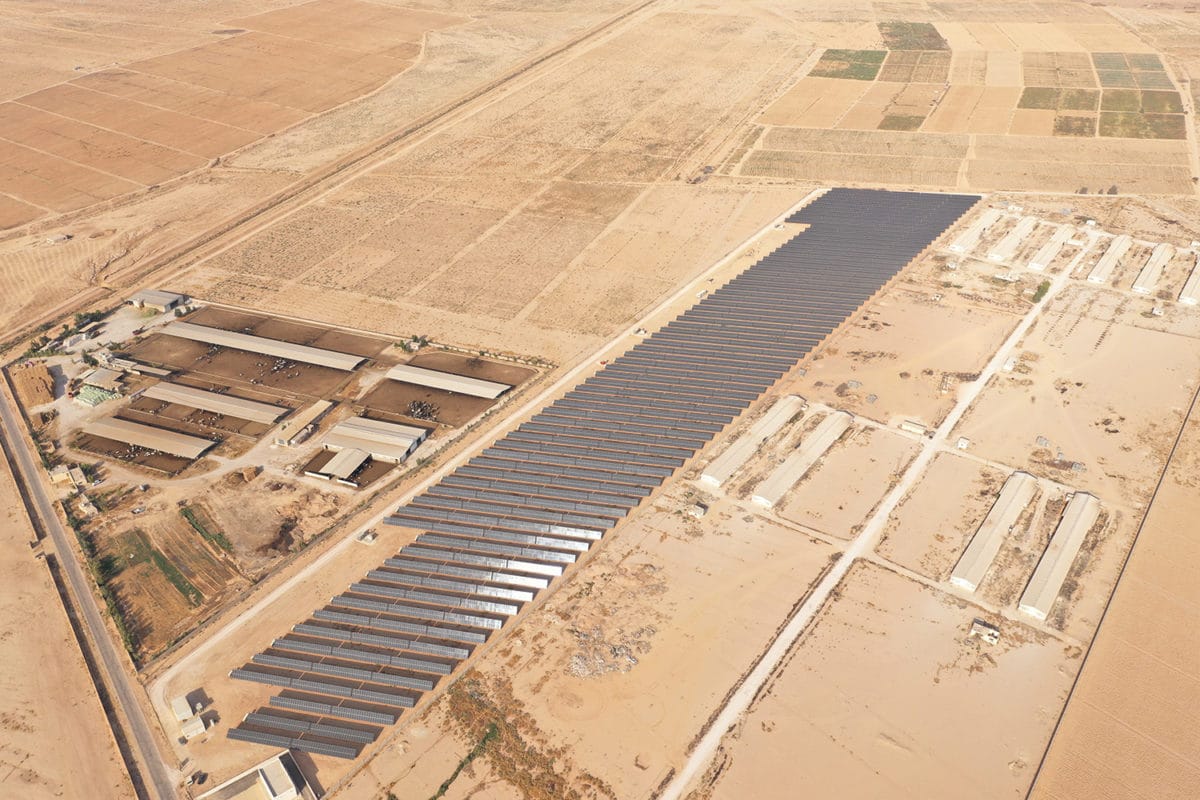The International Renewable Energy Agency (IRENA) has stressed the importance of electrifying non-energy sectors such as industry, heating and cooling and transport in a report published to map the energy transition in Jordan.
With Covid-19 having reduced energy demand in the kingdom, the Middle Eastern state is hampered by grid problems of an unusual kind as its electricity network already hosts too much generation capacity, according to the Renewables Readiness Assessment for The Hashemite Kingdom of Jordan produced in association with the Ministry of Energy and Mineral Resources.
The authorities in Amman prioritized energy independence in a national energy strategy drawn up in June in a kingdom which relied on imports to meet 92% of its energy demand in 2018, at an estimated cost of around 10% of GDP.
Ambition
The National Energy Strategy for 2020-2030 aims for the 20% of Jordan's electricity generation met by renewables at present to reach 21% this year and 31% by 2030 when, it is hoped, clean power will contribute 14% of the overall energy mix, up from 8% in 2018.
IRENA lauds the swift progress made on renewable energy to date in Jordan, which went from contributing just 0.7% of the energy mix in 2014 to 13% five years later, but the challenge facing the industry is illustrated by the fact the kingdom's desire to reduce imports has prompted the government to start work on the nation's first, 30 MW coal-fired power station and to explore the exploitation of domestic shale oil deposits.
Most of the recommendations made by the report–which cites four pv magazine correspondents–come back to the need to modernize and upgrade the grid at the same time as driving electrification of new sectors to ramp up energy demand.
Popular content
The study also frequently harks back to the decision by the government, in January 2019, to halt the development of new renewables projects with a generation capacity of 1 MW or more. As reported by pv magazine in March, the authorities also temporarily disconnected all unsubsidized renewables projects which used the grid to transmit electricity generated at remote sites to private consumers. Those ‘wheeling' projects had their connections restored between March and May, the report added.
The IRENA document calls for the resumption of ‘direct proposal' renewable energy auctions, which involve developers suggesting projects to the authorities, who then award them after competitive electricity-tariff bidding. The last such exercise was staged in 2018. The inclusion of energy storage requirements in such procurement rounds could ease grid concerns, suggested IRENA.
Rooftop
Programs to expand solar rooftop installation in energy-poor neighborhoods, and on public buildings should be more ambitious, advises the study. The development by the authorities of dedicated renewables sites for wheeling clients could open up clean power for more private energy consumers as land acquisition and grid connection are hurdles which currently have to be negotiated by developers, restricting corporate solar to the entities with the deepest pockets.
The thorny question of energy demand prompted the report's authors to emphasize the need to formulate policy to encourage the electrification of heating and lighting, industry, and transport, and to explore energy carriers such as green hydrogen for hard-to-electrify industry. Another way of driving energy demand would be to expand regional agreements with neighboring Egypt, Palestine, Saudi Arabia and Lebanon, according to the study.
The report concludes with the perennial business call for permitting to be simplified as well as an indication more domestic financiers should enter the renewables marketplace in a nation where 75% of clean energy backing comes from beyond its borders. It is suggested multilateral development lenders could help in that respect, with the provision of joint financing and of capital to de-risk investment.
This content is protected by copyright and may not be reused. If you want to cooperate with us and would like to reuse some of our content, please contact: editors@pv-magazine.com.



By submitting this form you agree to pv magazine using your data for the purposes of publishing your comment.
Your personal data will only be disclosed or otherwise transmitted to third parties for the purposes of spam filtering or if this is necessary for technical maintenance of the website. Any other transfer to third parties will not take place unless this is justified on the basis of applicable data protection regulations or if pv magazine is legally obliged to do so.
You may revoke this consent at any time with effect for the future, in which case your personal data will be deleted immediately. Otherwise, your data will be deleted if pv magazine has processed your request or the purpose of data storage is fulfilled.
Further information on data privacy can be found in our Data Protection Policy.